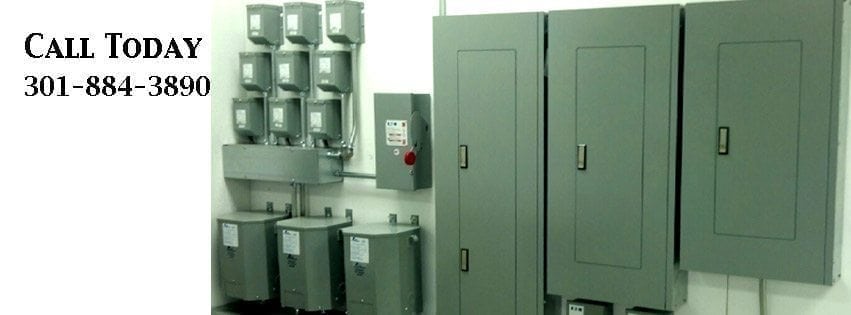
Local St. Mary’s County Electrician offers answers to a frequently asked question. | What’s the difference between a breaker panel and my old fuse panel?
If you have a fuse panel in your house, odds are that your electrician has been hounding you to replace it with a breaker panel. The reason has nothing to do with needing work and everything to do with convenience. You see, homes today require more power than they did in the past. Large power loads can destroy electrical equipment and even cause fires. A fuse panel or circuit breaker panel both protect against power overloads by interrupting the flow of electricity. However, how they go about performing that interruption is a bit different.
How Fuses Work
A fuse is a piece of metal that melts when it gets too hot. While they are very good at quickly interrupting the flow of power, they have to be replaced whenever they melt. Unfortunately, it doesn’t take a lot to make them melt. There are many different fuses on the market with different voltages and ratings available. The fuses are held within a central fuse box in your home.
How Circuit Breakers Work
When turned on, the circuit breaker allows electricity to flow across a solenoid or strip. When the flow gets too high, the circuit trips and shuts down the electrical flow by breaking the connection. To reset the circuit after the power has been interrupted, the switch can simply be flipped. You don’t need to replace the circuit breaker every time it is tripped.
Circuit breakers can be used with GFCI outlets, which prevent electric shock. They work by breaking the circuit at the outlet if it becomes unbalanced. There’s a button on the outlet to reset it. GFCI outlets are usually found in bathrooms and kitchens.
Advantages and Disadvantages
Both fuses and circuit breakers have their own advantages and disadvantages. Fuses are expensive and require replacing every time they are used. However, they provide more sensitive protection than circuit breakers, which can be an advantage when electronics are involved.
Many people prefer circuit breakers over fuses because they don’t require replacing. They don’t react as quickly and aren’t as sensitive as fuses. They are also considered safer by most electricians because the user doesn’t have to pick the right fuse rating for the electrical line and all electric panel wiring is hidden within the breaker box.
Circuit breakers can be expensive to install and repair. However, in homes that are equipped with GFCI outlets, circuit breakers are the only option. Your electrician can help you determine whether you should use a fuse box or a circuit breaker.
